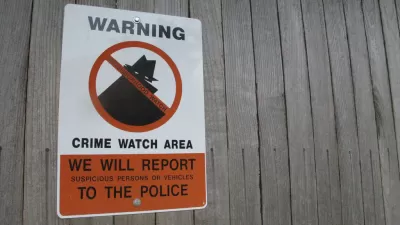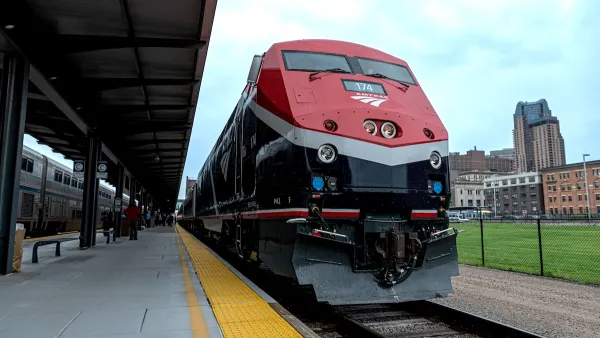New research has found a link between drug dealing and certain urban environments, which researchers believe can lead to better policing strategies.

We've all heard of the broken window theory, but what about the links between foreclosed homes or problem landlords and drug dealing? Researchers believe they have found significant links between a host of potential problem areas in the urban environment and the likelihood of drug dealing. The researchers' findings, summarized on a blog post from LSE-US Centre (London School of Economics), derive from research which looked at the "ecological advantages" in the urban environment for drug dealing in Chicago. As the study notes, past research has found that "nearly half of all drug transactions occur on less than 5 percent of street segments." What is it about these locations that make the so attractive to drug dealers? Per the research findings:
We assessed the relationship between 28 environmental features that were likely to bolster accessibility or security in open-air drug markets for four drug types: cannabis, heroin, crack, and cocaine. The main results of our four risk terrain models are presented in Table 1. Overall, we identified 11 environmental features related to cannabis dealing, 12 for heroin dealing, 11 for crack dealing, and 3 for cocaine dealing. The riskiest feature for markets of all drug types in Chicago was foreclosures; the relative risk values indicate that the risk of drug dealing near foreclosures alone was higher by a factor of between 5 and 16.5 compared to other features in each model.
...
Across all drug market types, our models highlighted several environmental features that are likely to enhance security and accessibility for open-air drug transactions. Security for drug transactions was enhanced in locations with broken street lighting, affordable housing, foreclosures, and problem landlords were at higher risk for cannabis, heroin, and crack dealing. In terms of accessibility, locations with gas stations, retail food establishments, bus stops, grocery stores, liquor stores, and schools were at higher risk for cannabis, heroin, and crack dealing.
The researchers conclude that based on their analysis, policing strategies can be changed to target these high-risk locations and pro-active measures can be taken through urban/environmental design to address problem areas that might encourage drug dealing.
FULL STORY: How the physical landscape of the urban environment affects drug dealing

Maui's Vacation Rental Debate Turns Ugly
Verbal attacks, misinformation campaigns and fistfights plague a high-stakes debate to convert thousands of vacation rentals into long-term housing.

Planetizen Federal Action Tracker
A weekly monitor of how Trump’s orders and actions are impacting planners and planning in America.

Chicago’s Ghost Rails
Just beneath the surface of the modern city lie the remnants of its expansive early 20th-century streetcar system.

Bend, Oregon Zoning Reforms Prioritize Small-Scale Housing
The city altered its zoning code to allow multi-family housing and eliminated parking mandates citywide.

Amtrak Cutting Jobs, Funding to High-Speed Rail
The agency plans to cut 10 percent of its workforce and has confirmed it will not fund new high-speed rail projects.

LA Denies Basic Services to Unhoused Residents
The city has repeatedly failed to respond to requests for trash pickup at encampment sites, and eliminated a program that provided mobile showers and toilets.
Urban Design for Planners 1: Software Tools
This six-course series explores essential urban design concepts using open source software and equips planners with the tools they need to participate fully in the urban design process.
Planning for Universal Design
Learn the tools for implementing Universal Design in planning regulations.
planning NEXT
Appalachian Highlands Housing Partners
Mpact (founded as Rail~Volution)
City of Camden Redevelopment Agency
City of Astoria
City of Portland
City of Laramie




























